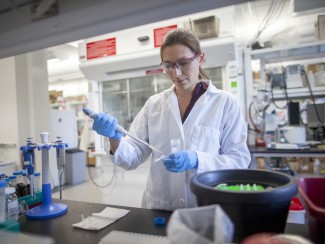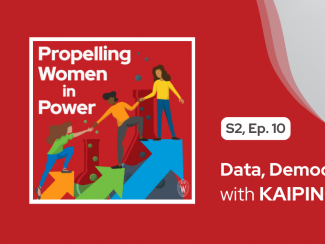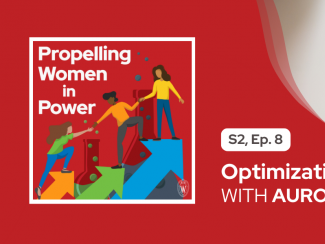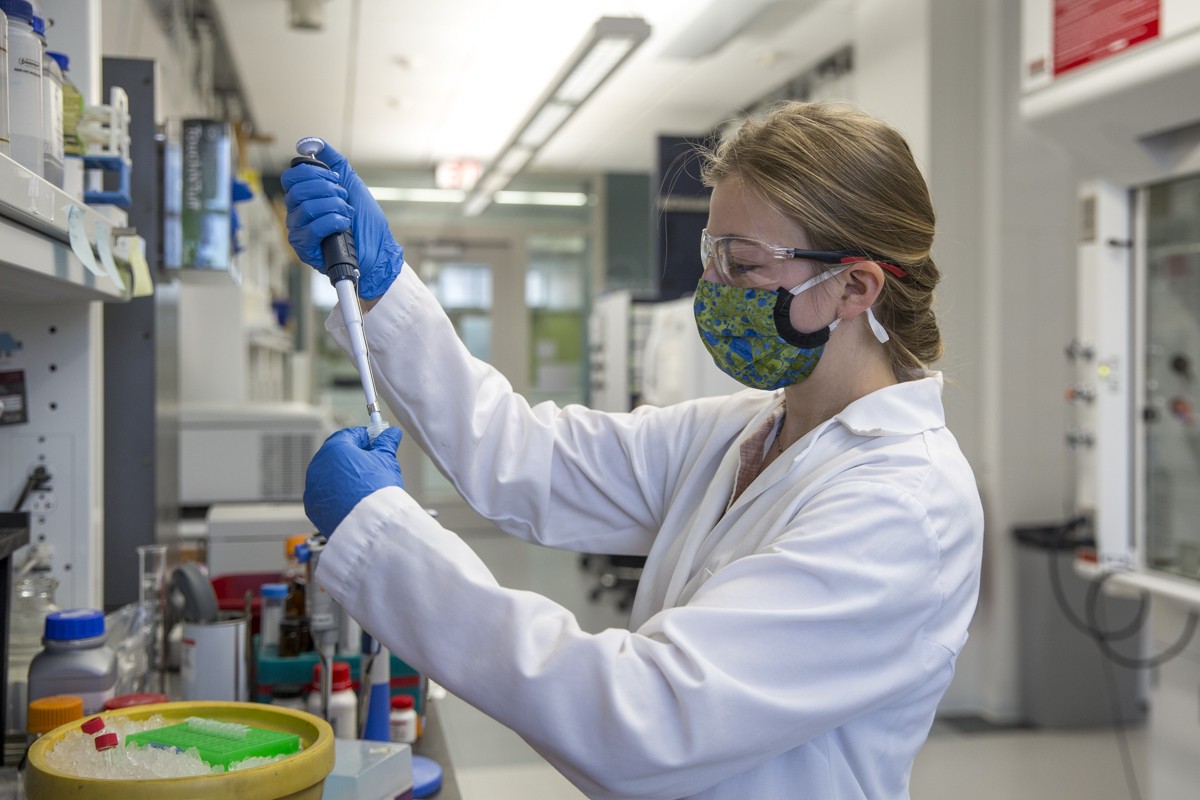
Our undergraduate, graduate, and postdoctoral researchers play an enormous role in the transition to a sustainable, resilient, and affordable energy future that is centered on social and economic equality. From lab experiments to field work to classrooms, these leaders of today and tomorrow are our catalysts for energy discovery.
In this series, we learn more about what inspired these talented researchers, what brought them to their field of study, and the questions that drive their work at the Wisconsin Energy Institute (WEI).
This week we spoke with Leta Landucci, an undergraduate researcher in John Ralph’s lab at the University of Wisconsin–Madison. Leta is from Middleton, Wisconsin, and is a senior studying biochemistry.
What did your path to UW–Madison look like?
I have always lived close to Madison, so UW–Madison was a natural choice for me. It is close to home and has a phenomenally diverse range of research opportunities, which appealed to me.
Do you have other academic interests besides your major?
Aside from biochemistry, I also enjoy learning about the history of science, specifically about the intersectionality of science, race, medicine, and the environment. I think the historically situated contexts of science are important to be aware of as science progresses.
How did you come to work in the Ralph Lab?
I have always had an interest in chemistry and botany. In the Ralph lab, I can combine these interests with the lab’s focus on plant-derived biofuels and renewable energy.
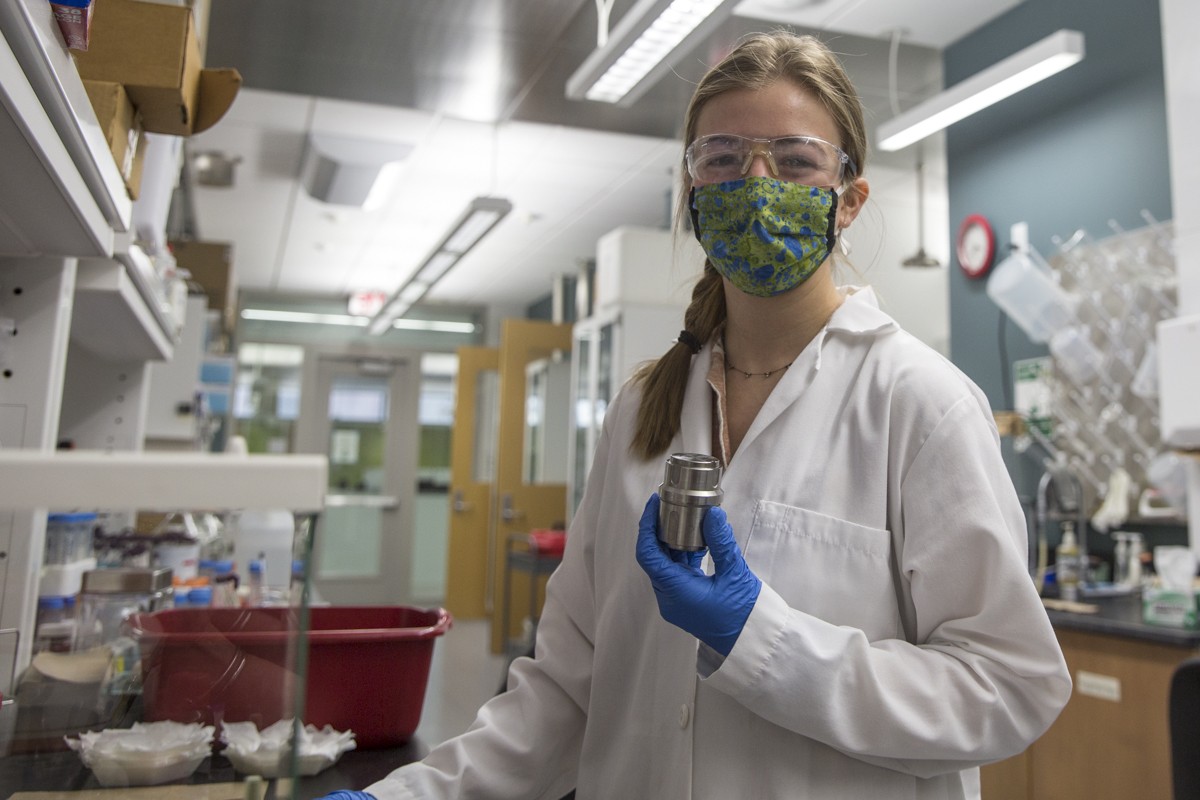
Can you tell me a little bit about your current research project?
I am currently characterizing the functionality of poplar tree enzymes in the Ralph lab. I am trying to identify whether these particular acyltransferase enzymes are involved in the biosynthesis of suberin, which is an impermeable, waxy material produced in the bark and roots of plants. Suberin acts as a protective barrier for the plant and helps it to regulate things like nutrients and water. This research has allowed me to learn many new ways to use analytical and chemical characterization methods. I am trying to understand how these enzymes work both in a test tube and in transformed, or genetically engineered, plants. Through this work, I have found several poplar acyltransferase enzymes that do appear to be involved in the biosynthesis of suberin, which is very exciting!
How do you see your research being developed or used in the future?
This research has important implications for understanding how plants may be optimized for specific uses through engineering. If we know more about the biological processes of plants, such as suberin biosynthesis, then we can engineer them to have properties that are advantageous to the development of biofuel crops. If we understand more about the enzymes involved in suberin biosynthesis, we may be able to engineer certain plants to express more of those enzymes, which may change the composition of suberin or increase the amount of suberin made. Ultimately, this could increase the environmental resilience of engineered plants, for instance, improving their tolerance to marginal conditions such as increased concentrations of salt in water, or drought conditions.
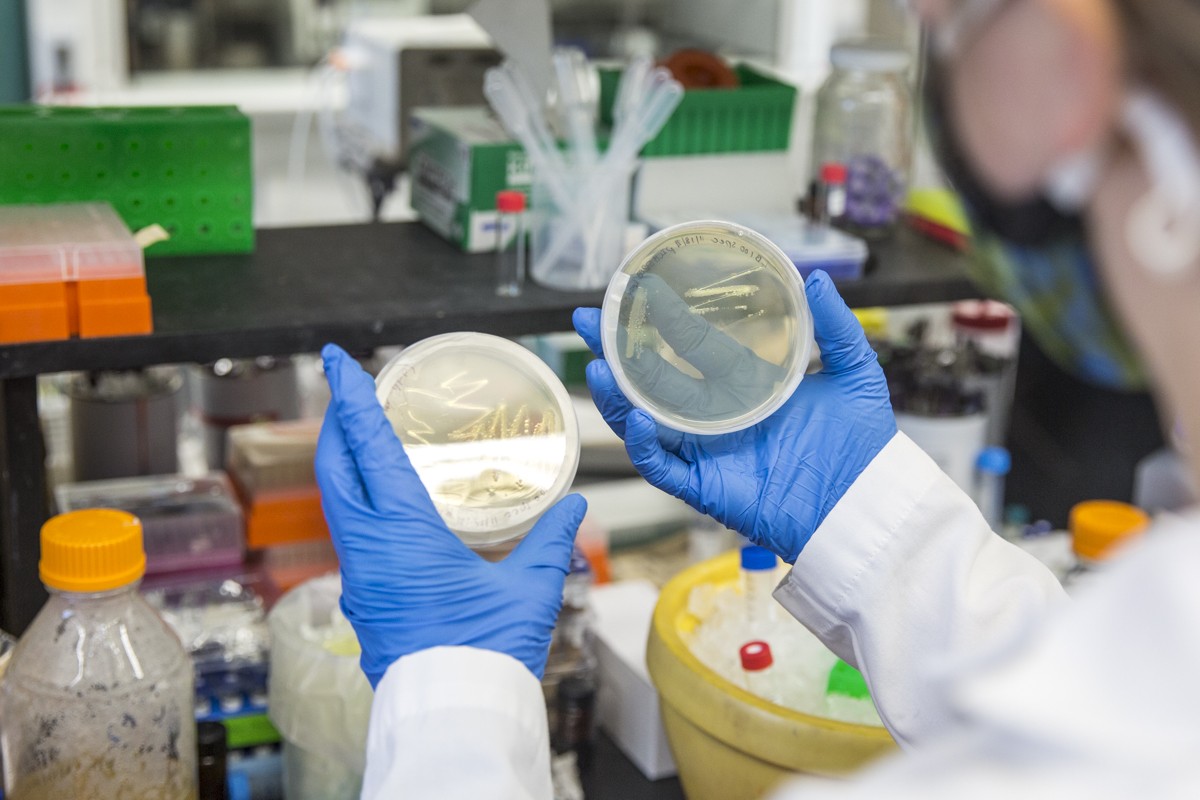
Do you have any mentors who have been especially helpful in assisting your experience as an undergraduate researcher?
I get to work with many postdoctoral researchers and associate research scientists in the Ralph lab, including Dr. Rebecca Smith. I have worked closely with Dr. Smith over the course of the last few years. However, there are many individuals with different specialties within the lab, all of whom I can turn to when different questions or problems arise.
What are your favorite experiences as an undergraduate researcher so far?
My favorite memories from working in the Ralph lab involve challenges with instruments and working with others to problem-solve! While it can be difficult, it is good experience. I also have fond memories of a previous project I worked on that involved growing duckweed in the lab. I also really enjoy growing Arabidposis, a model plant. It is really neat to observe its natural florescence under the microscope.
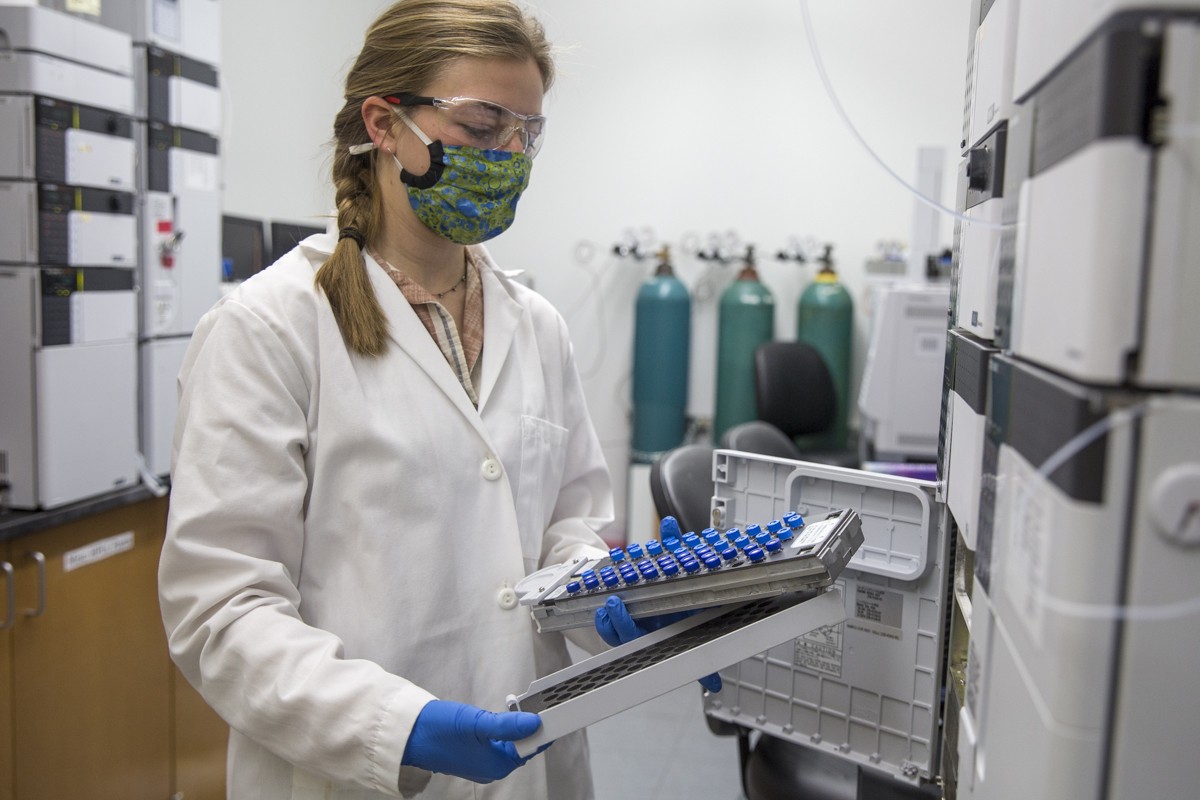
What are your plans for the future?
After graduation, I hope to work as a research intern for a year, and then plan to go to graduate school. I am excited to continue exploring my research interests. As a professor recently told me: “Uncertainty is opportunity.”
What advice do you have for undergraduate students who may want to get involved with research, especially at WEI?
Researchers love to talk to students about their work! Even just going up to a professor after class can start that conversation. In addition to the topic of research, lab work can entail different things, so it’s also important to think about what you want your time in lab and role to look like. Also, know that if you find yourself wanting to try a different area of research, your mentors will support you in making that switch. They want you to find what you enjoy!
Are you involved with any student organizations on campus?
I have been a member of the Journal of Undergraduate Science and Technology (JUST) for the last two semesters. The organization is made up of a collection of students interested in communicating new research and science across the campus community. Science communication is important to me because I believe that for science to gain relevance, it must reflect the interests of the public. It’s important to show the public how science is applicable to their lives to gain their understanding and support.
I am also a part of Biocore Outreach Ambassadors. We work with K-12 kids to foster curiosity in science and run experiments with students in after school science clubs and family science nights. I have also had some great experiences at WEI outreach events!
What do you do for fun outside the lab?
I enjoy biking around Madison, exploring new places, reading, photography, and backpacking in my free time! I spent time backpacking this past summer as a citizen science volunteer for a Moosewatch expedition on Isle Royale National Park. I helped collect moose bones for researchers, which was a really fun experience! I also love to backpack with family and friends, especially at the Wind River Range Mountains, which is one of my favorite places.

